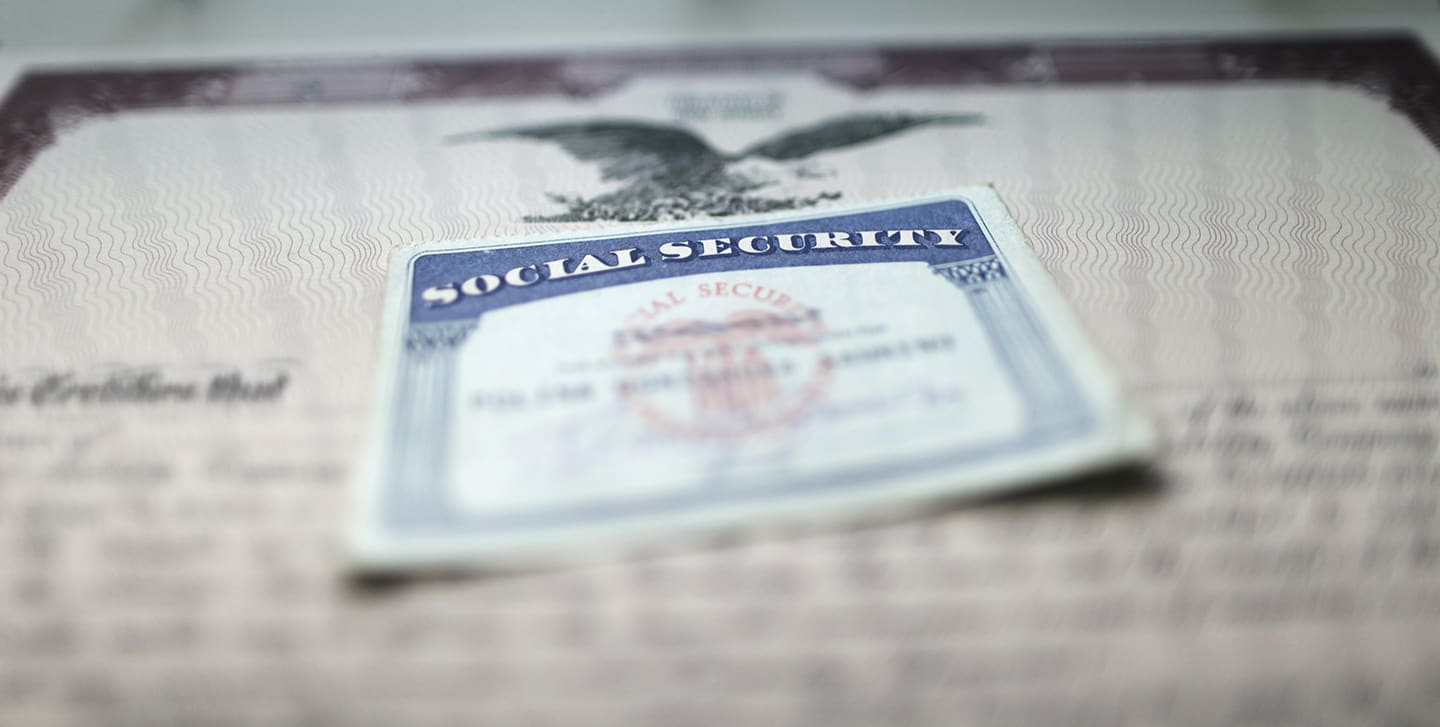What Are Social Security Benefits And How To Determine If You Are Eligible
Before you receive any Social Security benefits, the Social Security Administration (SSA) will need to determine your eligibility. Remember that Social Security is an insurance system designed to pay you benefits during times of economic hardship. Just as a medical insurance plan representative must review your policy coverage before paying your surgical bill, a Social Security administrator must examine your Social Security record to ensure that you are eligible for the type of benefit for which you have applied. Determining your eligibility will mean finding answers to the following questions:
- Have your earnings been subject to Social Security taxes?
- What is your insured status?
- Have you met the eligibility requirements specific to your benefit claim?
- Have you filed your benefit claim?
Your Earnings Have Probably Been Subject To Social Security Taxes
Most people are covered by Social Security. Since Social Security is compulsory, most company employees, members of the armed forces, and self-employed persons participate and will someday be eligible for benefits. Two groups that are excluded from Social Security coverage are railroad workers whose work is covered by the Railroad Retirement Act and federal employees hired before 1984, who are covered under the Civil Service Retirement System (CSRS). Special coverage terms apply to other groups, including hospital interns, farm workers, members of religious orders, student nurses, newspaper vendors, and domestic workers. If you are covered by Social Security, you will know it when you look at your paycheck. Currently, 6.2 percent of your pay up to an annual limit of $118,500 (in 2015) is deducted each pay period. A 1.45 percent Medicare tax is also withheld from your pay (no annual limit applies). Your employer matches your tax payments. If you are self-employed, you pay a 15.3 percent self-employment tax on your net earnings to finance Social Security.
Your Insured Status Affects Your Eligibility For Benefits
Your insured status is the foundation of any benefit claim. You are considered insured when you have acquired a certain number of Social Security credits. These credits are also known as quarters of coverage. Since 1978, covered workers receive credits based on their annual earnings. Every year, the earnings necessary to earn one credit increase according to how much the national average wage has increased. In 2015, you earn one credit for every $1,220 in earned income, up to a maximum of four credits per year. Prior to 1978, an employee earned one credit for each calendar quarter (three-month period ending March 31, June 30, September 30, or December 31) in which covered wages paid were $50 or more (hence the term "quarters of coverage"). However, even if the employee received no wages in some of the quarters, he or she could still earn the maximum four credits if his or her total annual wages equaled or exceeded the maximum Social Security earnings base for that year.
Earning Social Security Credits Are Based On Your Total Annual Income
The number of credits you earn in a year depends upon how much money you made, not how many months you worked. For instance, if you work for two months in 2015 and make $2,440, you will have earned two credits ($1,220 x 2). If you work six months and make $2,800, you will also have earned two credits. To earn three credits, you would have to earn at least $3,660 ($1,220 x 3). To earn four credits for the year, you would have to make at least $4,880, the income required to earn the maximum number.
Credits Are Awarded In Whole Units Only
If you earn $2,440 in 2015, you will earn two credits. If you earn $3,050, you will still earn only two credits, not two and one-half credits, since credits are awarded in whole units only
Credits Can Be Acquired At Any Age (Even After Retirement Age)
You're never too old to earn credits. Unless you've already reached the maximum credits possible (40 credits), any income you have that is subject to Social Security taxes can earn you more credits, even if you are already old enough to retire.
Credits Can't Be Lost Once You've Earned Them
Once you earn the credits, they're yours to keep, even if you never work again.
Credits Don't Determine The Amount Of Your Social Security Benefit
The size of your benefit check has nothing to do with how many credits you have earned. They only determine what type of benefits for which you might be eligible.
Fully Insured Status Versus Currently Insured Status
Determining your insured status is important because if you have not acquired the credits necessary to receive Social Security benefits, your claim will be denied even if you meet other eligibility requirements. To receive some types of benefits, such as retirement benefits, you must be fully insured. To receive other benefits, such as survivor's benefits, you may only need to be currently insured. Obtaining fully insured status means that you are entitled to full Social Security benefits. To become fully insured you must:
- Earn 40 credits (10 years in work subject to Social Security taxes) or
- Earn at least one credit for each year elapsing after 1950 (or, if later, after the year in which you reached age 21) and before the year in which you reach age 62, die, or become disabled (whichever comes first), and earn at least six total credits
Example(s): Example A: John died after suffering a head injury. He was 45. He had earned 30 credits during his lifetime. Because he had earned at least one credit for every year that had elapsed between the year he turned 21 and the year he died, he was fully insured, and his survivors were entitled to benefits based on his Social Security earnings record. Example B: Jill was disabled in a car accident. She was 49. She wants to apply for retirement benefits at age 65. She had earned 40 credits by the time of her accident. Even though she might not work again, she has already earned the maximum credits required to become fully insured. Obtaining currently insured status means that you (or your eligible survivors) are entitled to partial Social Security benefits based on your earnings record, such as survivor's benefits, disability benefits, and a $255 lump-sum death benefit. You will not be entitled to old-age retirement benefits. To become currently insured you must:
- Earn at least six credits during the 13-quarter period ending with the calendar quarter in which you die, become entitled to retirement insurance benefits, or become entitled to disability benefits
Example(s): Mary died in April of 2014. She was 25. Between January 1, 2012, and the time of her death, she had earned eight credits. She earned three in 2012, four in 2013, and one in 2014. Because she had earned more than six credits within the 13-quarter period, she was currently insured at the time of her death.
Basic Eligibility Requirements For Beneficiaries
In general, you can receive Social Security benefits if you meet the eligibility requirements for your type of claim. The following table outlines the basic requirements for beneficiaries but does not include all eligibility requirements.
| Beneficiary | Age Required | Conditions |
| Retired worker | 62 or over | Fully insured |
| Disabled worker | Under age 65 | Disability is expected to last for at least 12 months or end in death |
| Spouse of retired or disabled worker | 62 or over | Must be entitled to benefits on worker's record |
| Spouse of retired or disabled worker with child | Any | Must be caring for a child under age 16 or a disabled child of any age who is entitled to benefits on worker's record |
| Surviving spouse of worker | Any | Must be caring for a child under age 16 or child disabled before age 22 |
| Surviving spouse of worker | 50-59 | Disabled |
| Surviving spouse of worker | 60 or over | Unmarried |
| Divorced spouse of retired or disabled worker | 62 or over | Married to worker at least 10 years, currently unmarried |
| Dependent child of retired, disabled, or deceased worker | Under 19 | Unmarried, full-time student at elementary or secondary school |
| Dependent child of retired, disabled, or deceased worker | 18 or over | Disabled before age 22 |
| Parent(s) of worker | 62 or over | Parents were dependent on deceased worker's support |
When you file your claim for benefits, you may be asked to submit proof of age, family relationship, school attendance, and, in some cases, citizenship. These documents will be used to support your application for benefits and determine if you are eligible for them.
How You Can File For Social Security Benefits
Social Security benefits are not automatic. To receive benefits, you must apply for them online or by making an appointment at your local Social Security office or by calling the SSA (see below). You should file promptly in person, by mail, or by phone.
- For retirement benefits: The SSA recommends that you apply for benefits three months before you want your benefits to start.
- For survivor's benefits: File for benefits in the month of the insured worker's death. Each entitled person should file.
- For disability benefits: You can file for benefits before you actually become entitled to benefits. If you file early (for example, before the five-month waiting period has ended), and your claim is approved, your application date is considered to be the first month you have satisfied the eligibility requirements.
- For the lump-sum death payment: The beneficiary should file within two years of the insured person's death.
If you have any questions about filing a benefit claim, or want information regarding eligibility for benefits, call the SSA at (800) 772-1213 or visit its website at www.ssa.gov.




